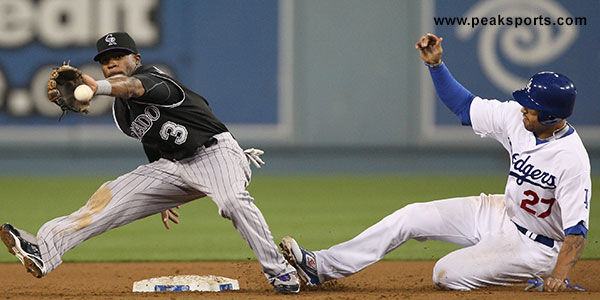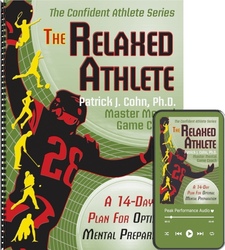
How Athletes can be Mentally Tough
What have you done to get an edge over your competition?
Athletes have tried all sorts of things to improve performance: supplements, new recovery regimens, athletic diets, improved training methods, increased practice sessions and mental toughness training.
All these things can aid athletic performance but there is only one that gives you an edge in pressure situations… and that is MENTAL TOUGHNESS.
Diet, recovery and physical training can only take you so far. These physical components prepare your body to compete at a high level but pressure situations require strength of mind to meet the mental challenges inherent in those critical circumstances.
Mental toughness gives you an edge in many ways:
Mental toughness helps you push through the physical and mental barriers when you feel exhausted towards the end of a competition.
Mental toughness conditions your mind to maintain a laser focus amid all the potential distractions that arise when competitive pressure increases.
Mental toughness helps create stable confidence so you can perform at your peak against top competition.
Mental toughness helps you to keep your composure when intense emotions start to stir in the heat of battle.
Mental toughness training gives you the ultimate edge over the competition.
For example, mental toughness was the key to victory for Novak Djokovic, one of the top tennis players in the world, in his finals match at Wimbledon against Roger Federer.
The match was an epic battle that lasted for four hours and 57 minutes with Djokovic winning 7-6, 1-6, 7-6, 4-6, 13-12.
It is well known in tennis circles that Djokovic engages in mental training daily, including visualization on a regular basis.
DJOKOVIC: “I obviously try to play the match in my mind before I go on the court… I always try to imagine myself as a winner. I think there is a power to that.”
Djokovic talked about how his mental toughness training helped prepare himself for the final set after four hours of intense competing.
NOVAK DJOKOVIC: “Also there has to be strength that comes not just from your physical self, but from your mental and emotional self. For me, at least, it’s a constant battle within, more than what happens outside. It’s really not the situations that you experience that are affecting you, but how you internally experience those situations, how you accept them, how you live through them.”
Success under pressure requires a great deal of mental toughness.
Mental toughness training is valuable for all athletes in all sports in all different types of circumstances.
If you are to succeed under pressure, then be sure to add mental toughness training to your daily regimen.
Mental Toughness in Pressure Situations:
Add visualization to your daily training regimen. Set aside 10-15 minutes a day to visualize different pressure situations you’ll encounter during competition.
Rehearse how you want to respond. See yourself coping well with turnover or missed shot. Feel how you would feel in that situation and how you will respond with composure and focus.
The more you anticipate and cope with how you will respond well to pressure, the more comfortable it will be to perform in those situations.
Related Sports Psychology Articles
- How to Compete Well in Pressure Moments
- How to Perform Big in Pressure Moments
- Is Pressure Your Friend or Foe?
*Subscribe to The Sports Psychology Podcast on iTunes
*Subscribe to The Sports Psychology Podcast on Spotify
Download a free sports psychology report to improve your mental game!
Learn more about our one-on-one mental game coaching.
The Relaxed Athlete

The ability to relax and play your game under pressure is what separates the winner from the loser in any competition. Champion athletes train hard in practice, are motivated for the right reasons, and are able to raise their game in crunch-time with two minutes remaining in the game..
A relaxed and confident performance begins in the mind! When you are mentally prepared to compete, you can have an optimal level of intensity AND poise!
The Relaxed Athlete program is ideal for any athlete that wants to overcome pregame anxiety, worry, or excess tension and learn to perform with poise. It’s also ideal for any coach or parent who wants to teach athletes to perform with poise and relaxation in competition.
